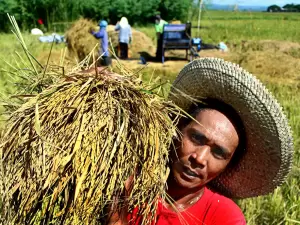
SPEAKER Ferdinand Martin G. Romualdez on Friday expressed strong support for the national government’s initiative to provide rice at ₱20 per kilo to more Filipinos in all parts of the country, highlighting the potential of a rice subsidy program as a more effective alternative to direct cash transfers.
“Providing affordable rice directly addresses hunger and ensures that assistance reaches the dining tables of Filipino families. This approach guarantees that government support translates into actual food security for our citizens,” said the leader of the 306-strong House of Representatives.
The Speaker’s remarks come in light of the Department of Agriculture’s (DA) recent announcement to pilot the ₱20-per-kilo rice program in the Visayas region. Agriculture Secretary Francisco Tiu Laurel Jr. confirmed that the program would allow eligible families to purchase up to 10 kilograms of rice per week at the subsidized rate.
In a social media post President Ferdinand R. Marcos, Jr. emphasized the significance of this development, stating, “20 pesos per kilo rice. That was the promise—and today, we begin to make it real, starting in the Visayas.”
Speaker Romualdez likewise pointed to Camiguin province’s successful implementation of a similar initiative, where collaboration between local government units (LGUs), the Department of Social Welfare and Development (DSWD), and local retailers enabled residents to access rice at half the usual price.
The Speaker commended Camiguin Governor Xavier Jesus Romualdo and Congressman Jurdin Jesus Romualdo for taking the lead in implementing the program, which has already helped hundreds of families buy affordable rice across multiple municipalities.
“The Camiguin model demonstrates the effectiveness of coordinated efforts among national agencies, LGUs, and private sector partners in delivering tangible benefits to the people,” Romualdez noted. “It’s a blueprint worth replicating nationwide.”
Under the proposed program announced by Secretary Tiu Laurel, the DA, in partnership with Food Terminal Inc. (FTI) and participating LGUs, will shoulder the price difference between the market rate and the subsidized ₱20 per kilo. This collaborative funding mechanism aims to make the program sustainable and scalable nationwide.
Romualdez said the Camiguin model, on the other hand, demonstrated how strategic collaboration among local governments, the Department of Social Welfare and Development (DSWD), and local retailers can make food more affordable for ordinary Filipinos.



